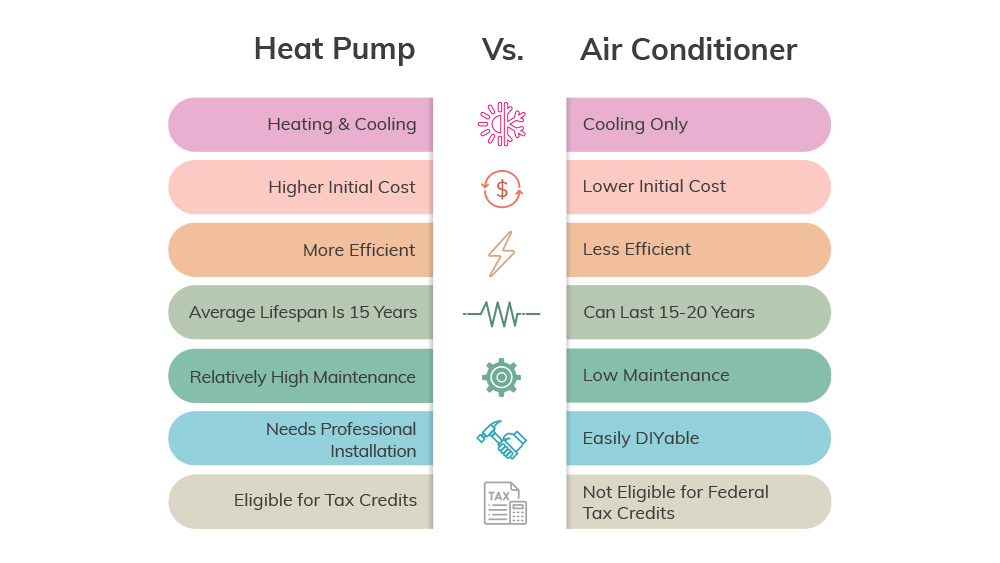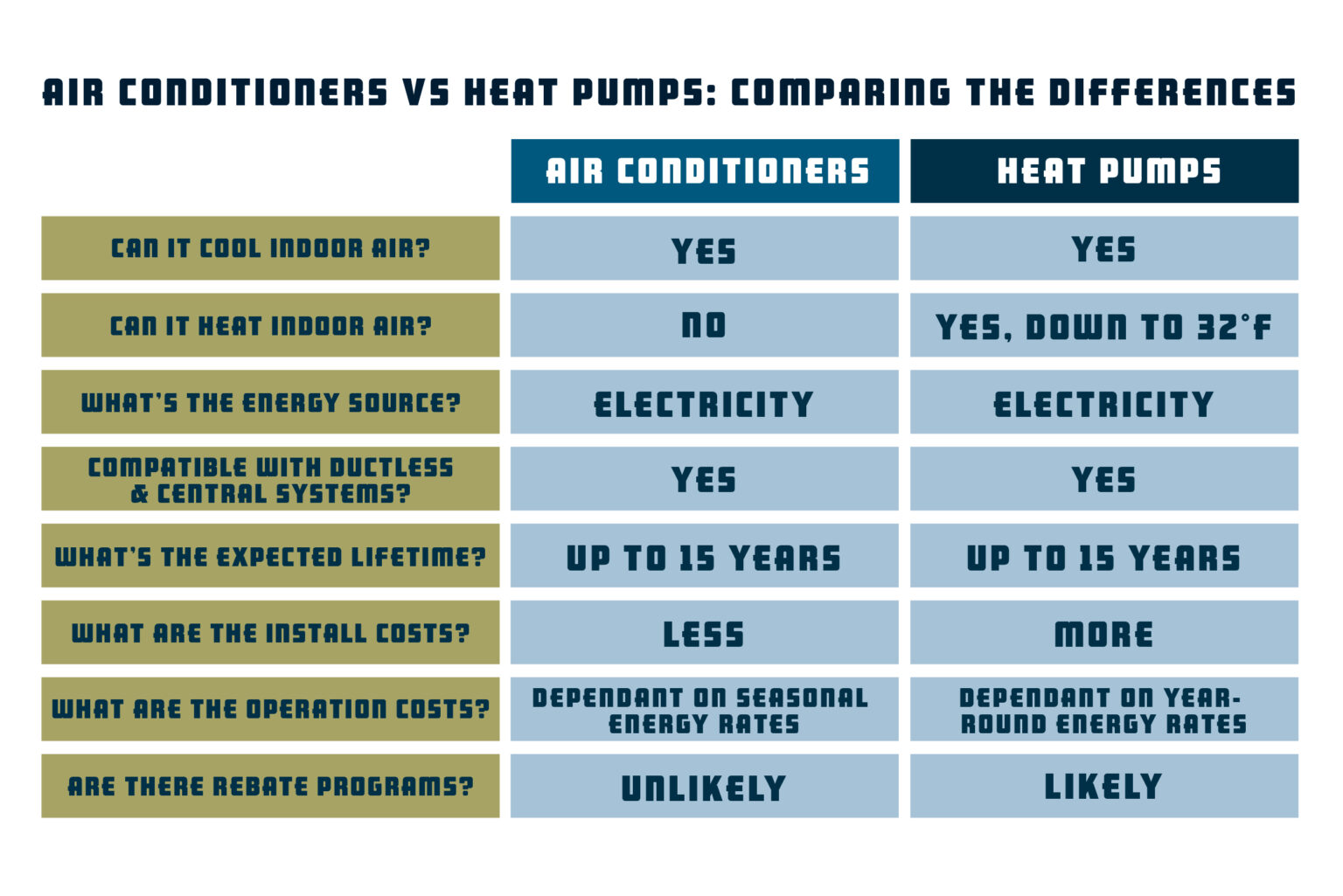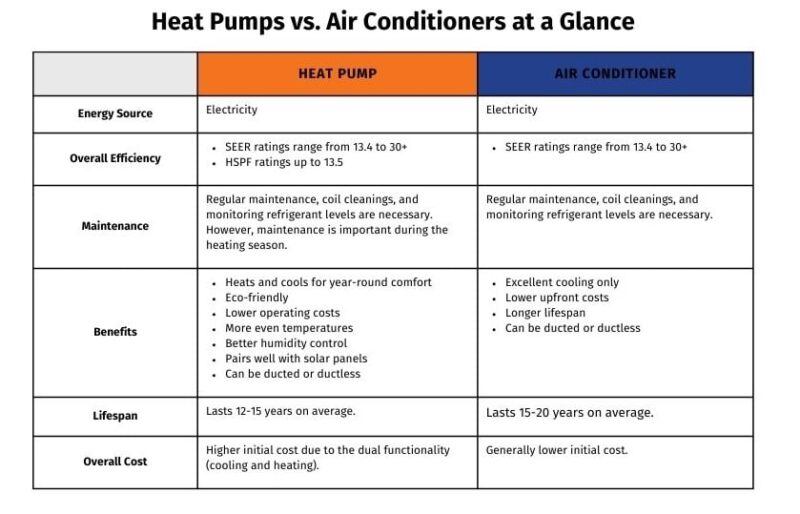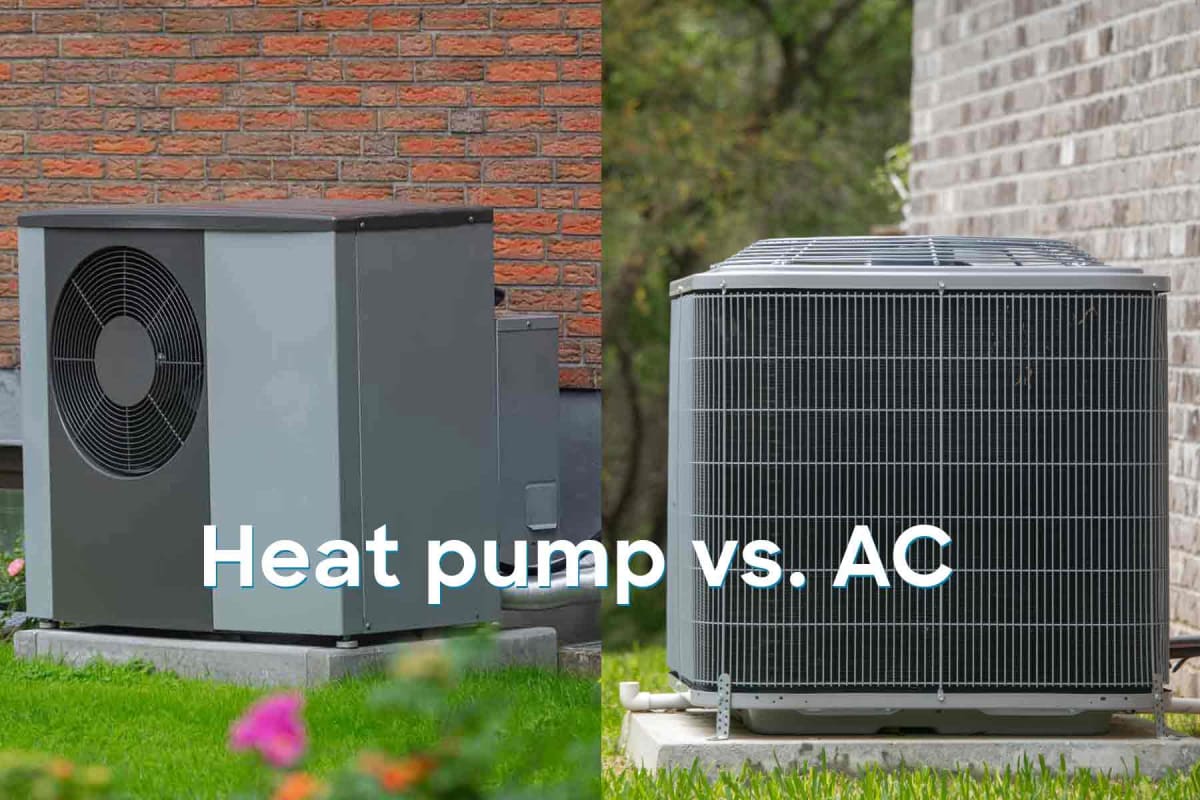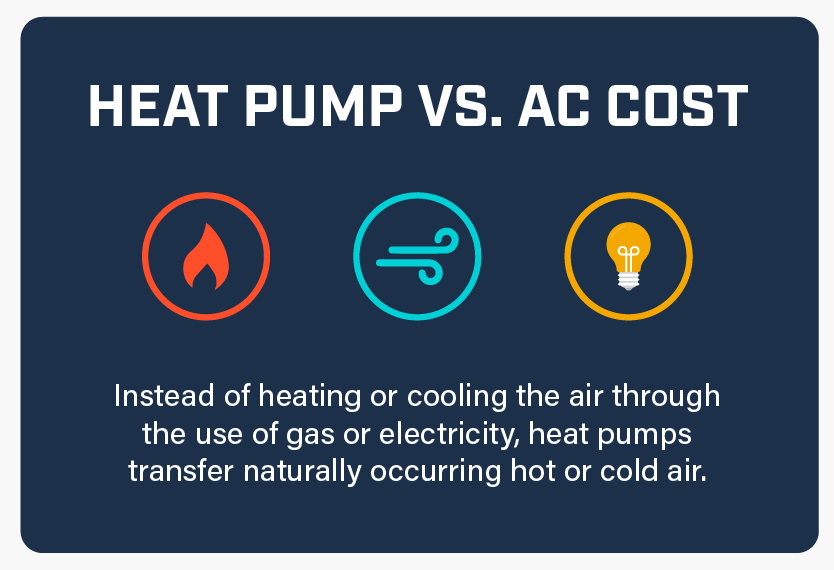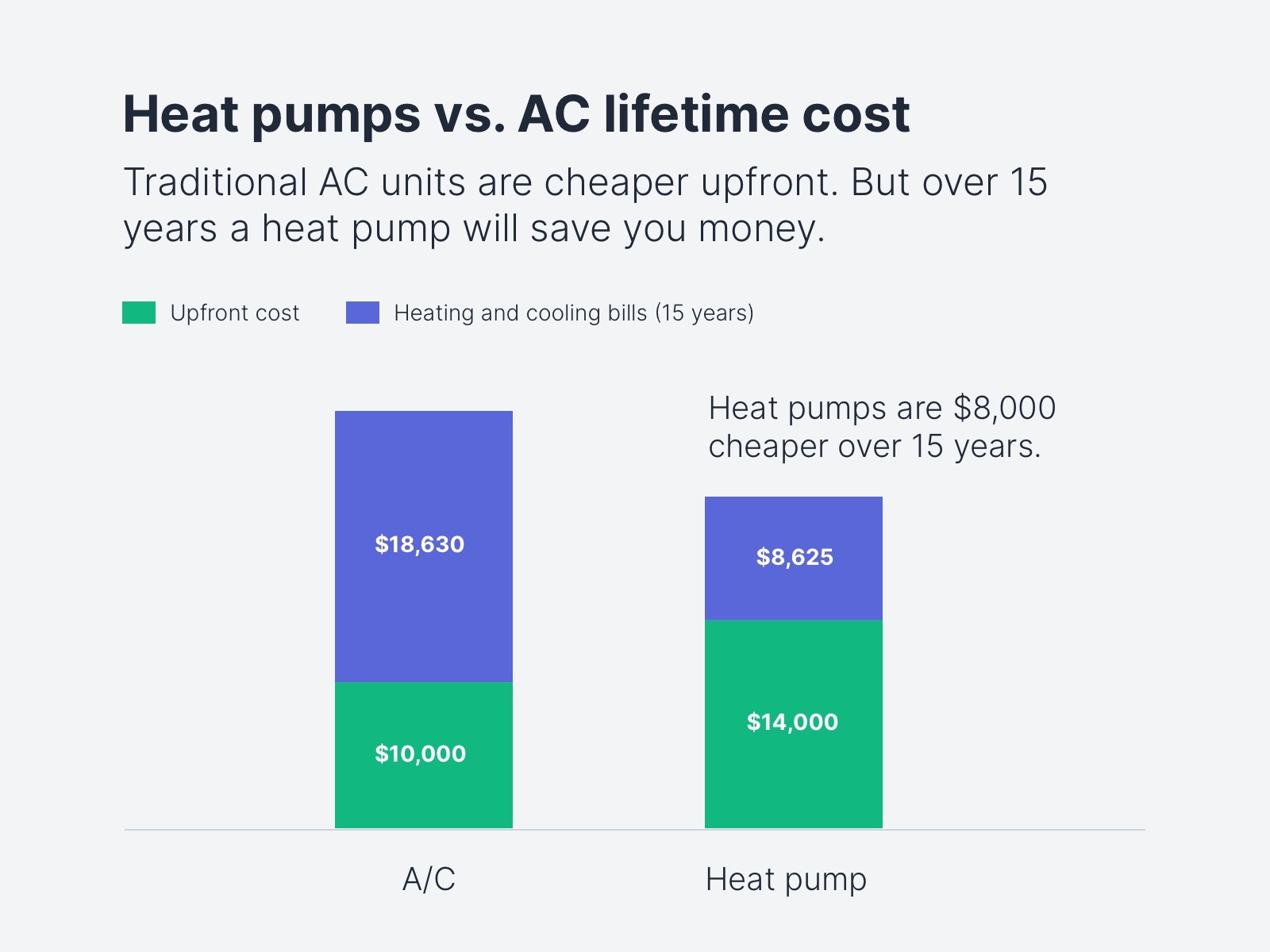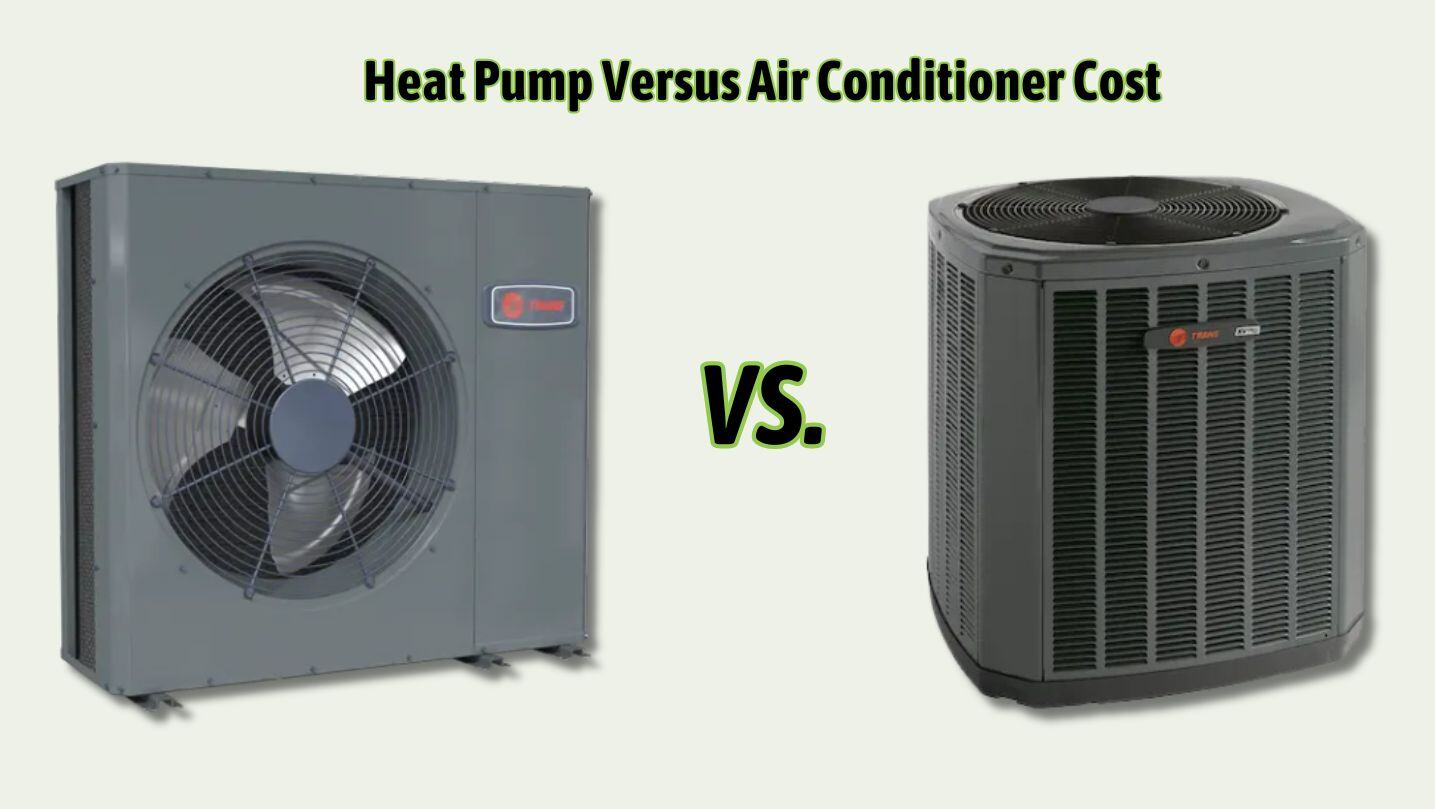Cost Of Heat Pump Versus Air Conditioner

Choosing the right climate control system for a home or business is a significant investment. Two popular options, heat pumps and air conditioners, offer different benefits and come with varying costs. Understanding the price differences, long-term operational expenses, and installation considerations is crucial for making an informed decision. This article explores the cost of a heat pump versus an air conditioner, examining the factors that influence pricing and the potential return on investment for each system.
Initial Purchase and Installation Costs
The upfront cost is often the first thing buyers consider. Generally, heat pumps tend to have a higher initial purchase price compared to air conditioners of similar cooling capacity. This difference stems from the more complex technology within a heat pump, which allows it to both heat and cool. Air conditioners, on the other hand, are designed solely for cooling.
Air Conditioner Costs: A standard air conditioner unit, suitable for a typical home, might range from $3,000 to $7,000 for the unit itself, plus installation costs. Installation can add another $1,000 to $3,000, depending on the complexity of the job, the existing ductwork (if any), and the geographical location.
Heat Pump Costs: A heat pump, offering both heating and cooling, usually ranges from $4,000 to $8,000 for the unit alone. Installation costs are usually higher than a standard air conditioner, potentially ranging from $1,500 to $4,000. This is due to the more intricate connections and the need for precise refrigerant charging to ensure optimal performance in both heating and cooling modes.
Several factors influence installation costs, including:
- Ductwork: Existing ductwork that is in good condition can lower installation costs. However, if ductwork needs repair, replacement, or new installation, this will significantly increase the overall expense.
- Electrical Work: Both air conditioners and heat pumps require proper electrical connections. Upgrading the electrical panel or running new circuits can add to the installation cost.
- Refrigerant Lines: The length and complexity of refrigerant lines connecting the indoor and outdoor units can also impact the installation price.
- Location: Labor costs and local building codes vary by region, affecting the final installation price.
Operational Costs: Efficiency and Energy Consumption
While the initial cost is important, the long-term operational costs are equally critical. These costs are primarily determined by the system's energy efficiency and the prevailing electricity and fuel prices.
Air Conditioner Efficiency: Air conditioner efficiency is measured by the Seasonal Energy Efficiency Ratio (SEER). A higher SEER rating indicates greater energy efficiency. Modern air conditioners typically have SEER ratings ranging from 14 to 25. The higher the SEER, the less electricity the unit consumes to provide the same amount of cooling.
Heat Pump Efficiency: Heat pumps have two efficiency ratings: SEER for cooling and Heating Seasonal Performance Factor (HSPF) for heating. A higher HSPF rating indicates greater heating efficiency. Modern heat pumps usually have SEER ratings similar to air conditioners, and HSPF ratings ranging from 8 to 13.
Operational Cost Comparison: Heat pumps, while more expensive upfront, can often result in lower operational costs, particularly in moderate climates. This is because heat pumps transfer heat rather than generate it, making them more energy-efficient than electric resistance heating (found in some older homes). In very cold climates, however, the efficiency of a heat pump can decrease, and supplemental heating (such as electric resistance heat) may be required, increasing energy consumption.
Consider these points when comparing operational costs:
- Climate: Heat pumps are generally most cost-effective in regions with mild winters and hot summers. In extremely cold climates, a high-efficiency furnace may be a more economical heating option.
- Electricity vs. Fuel Prices: The relative cost of electricity compared to other fuels (natural gas, propane, oil) will significantly impact the operational cost. If electricity is expensive, a heat pump might not be the most cost-effective option for heating.
- Usage Patterns: How frequently and for how long the system is used will influence the total energy consumption.
Maintenance and Repair Costs
Regular maintenance is crucial for both air conditioners and heat pumps to ensure optimal performance and longevity. Preventative maintenance typically includes:
- Cleaning or replacing air filters
- Cleaning coils
- Checking refrigerant levels
- Inspecting electrical connections
- Lubricating moving parts
The cost of maintenance is generally similar for both types of systems. However, heat pumps, being more complex, may require more specialized maintenance and repairs. Potential repair issues for both systems include:
- Refrigerant leaks
- Compressor failure
- Fan motor issues
- Electrical problems
- Control board malfunctions
The cost of repairs can vary widely depending on the specific issue and the availability of parts. Hiring a qualified and certified HVAC technician is essential for accurate diagnosis and effective repairs. Certifications like NATE (North American Technician Excellence) demonstrate a technician's competency and expertise.
Government Incentives and Rebates
Many governments and utility companies offer incentives and rebates to encourage the adoption of energy-efficient HVAC systems. These incentives can significantly reduce the upfront cost of a heat pump or high-efficiency air conditioner. Check with local utility companies and government agencies for available programs in your area. The Inflation Reduction Act, for example, provides tax credits and rebates for energy-efficient home improvements, including heat pumps.
Career Opportunities in HVAC
The HVAC industry offers a wide range of career opportunities for skilled professionals. The demand for qualified technicians is expected to grow in the coming years, driven by factors such as increasing construction activity, stricter energy efficiency standards, and the growing adoption of advanced HVAC technologies.
HVAC Technician: HVAC technicians install, maintain, and repair heating, ventilation, and air conditioning systems. They may work for HVAC contractors, property management companies, or manufacturers. According to the Bureau of Labor Statistics, the median annual wage for HVAC mechanics and installers was $51,390 in May 2022. The job outlook is projected to grow 6 percent from 2022 to 2032.
HVAC Installer: HVAC installers specialize in the installation of new HVAC systems. They must be proficient in reading blueprints, installing ductwork, connecting refrigerant lines, and performing electrical connections.
HVAC Service Technician: HVAC service technicians focus on the maintenance and repair of existing HVAC systems. They must be skilled in troubleshooting, diagnosing problems, and performing repairs.
HVAC Sales Engineer: HVAC sales engineers work with clients to design and specify HVAC systems for commercial and industrial buildings. They must have a strong understanding of HVAC principles and be able to communicate effectively with clients.
Certifications and Training: Several certifications can enhance career prospects in the HVAC industry. These include:
- EPA Section 608 Certification: Required for technicians who handle refrigerants.
- NATE Certification: Demonstrates competency in specific HVAC areas, such as installation, service, or efficiency.
- Industry-Specific Training Programs: Many manufacturers and trade schools offer training programs on specific HVAC systems and technologies.
- Apprenticeships: Combine on-the-job training with classroom instruction, providing a well-rounded education.
Example Career Path: A typical career path might start with an apprenticeship, followed by earning certifications and gaining experience as a technician. With further education and training, individuals can advance to supervisory roles, sales engineering positions, or even start their own HVAC business.
Conclusion: Making the Right Choice
The decision between a heat pump and an air conditioner involves a careful evaluation of several factors, including initial cost, operational costs, climate, energy efficiency, and personal preferences. While heat pumps typically have a higher upfront cost, they can offer lower long-term operational costs, especially in moderate climates. Air conditioners, on the other hand, may be a more economical choice in extremely hot or cold regions or when electricity costs are high.
Before making a decision, it is recommended to obtain quotes from multiple HVAC contractors, conduct a thorough energy audit of your home, and consider any available government incentives or rebates. Consulting with a qualified HVAC professional can provide valuable insights and help you choose the best system for your specific needs and budget. Obtaining the EPA 608 certification and NATE certification can also make you stand out to employers.

